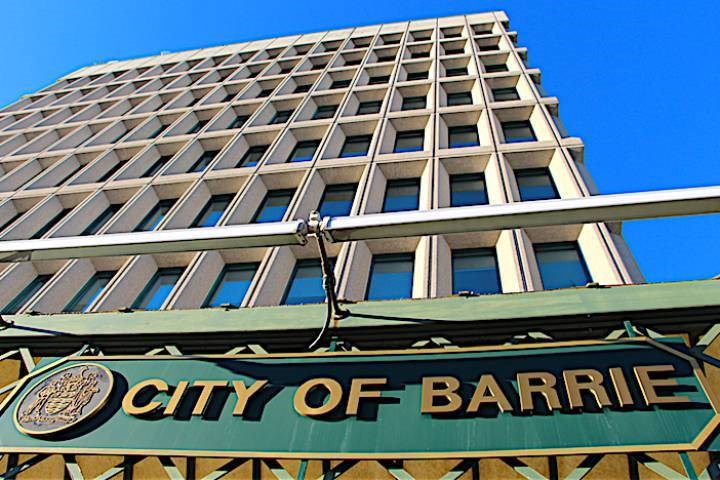Barrie’s community energy and greenhouse gas emission reduction plan — in draft form — is expected to be ready in the fall and it has some large goals.
“Most people are aware of climate change and its implications. The reason we’re doing this plan is you want to have a plan that allows you to enact strategies to mitigate or reduce your emissions,” said Adam McMullin, the city’s manager of energy management. “The reason for doing that is you want to reduce the intensity of climate change and the impacts of climate change in the future.
“We’re developing a plan that’s founded in science and it’s using actual data to identify the best path forward," he added.
City councillors recently heard a recent presentation of the plan from McMullin, including its ‘big moves’ — most notably near-zero emissions in new and existing buildings, along with in transportation.
In 2018, 55 per cent of Barrie’s emissions were from private vehicles, 27 per cent were from residential buildings and nine per cent came from commercial buildings.
The way to reduce emissions from private vehicles is to get people out of their cars and using public transit, bicycles, etc., or into electric vehicles.
“I personally think that’s one of the easiest points to kind of make an impact, both within our own municipal fleet and private consumption,” Coun. Sergio Morales said of electric vehicles.
In 2019, the Canada Energy Regulator, an arm of the federal government, said the zero emission vehicle (ZEV) share of new vehicle registrations in Canada was 2.7 per cent, and there were about 50,000 ZEVs registered here. In the first six months of 2020, the ZEV share of new vehicle registrations grew to 3.5 per cent.
Barrie’s draft community energy and greenhouse gas emission reduction plan also looks at near-zero emissions in new and existing buildings — retrofits in homes, commercial and institutional sectors, green development standards for new construction and solar solutions.
“I know the plan has not been presented to council yet, but I’m stuck by that 27 per cent number for residential buildings,” Mayor Jeff Lehman said. “You only add one per cent to the building stock a year, at most, maybe two per cent, so retrofits become a much bigger issue.
“What’s the No. 1 thing that can be done by either homeowners or building owners that’s going to make an impact?” he asked.
“Essentially, the residential homes that use natural gas for heating are the big source of emissions, and there are simple things that can be done to reduce your emissions, and cheaply,” McMullin said.
He mentioned programmable thermostats, putting in door sweeps to reduce drafts, but also more expensive options such as electric furnaces, heat pumps and thermal insulation.
McMullin also said there’s an economic consideration to the community energy and greenhouse gas emission reduction plan.
All of Barrie’s total energy cost in 2018 was nearly $600 million, he said.
“The majority of those dollars flow out of the community,” McMullin said. “If you can enact plans and reduce your energy usage and mitigate emissions, then those dollars instead of leaving the community, they stay in the community.”
Almost exactly three years ago, in March 2018, city council approved $180,000 in capital funding to develop a community energy and greenhouse gas emissions reduction plan.
Future costs have not been determined, although Coun. Ann-Marie Kungl has asked about the source of future funding.
Barrie treasurer Craig Millar said he would need more information about the most appropriate funding source, but it would most likely be one of the city’s stabilization reserves.
A virtual public information meeting on the draft community energy and greenhouse gas emission reduction plan is scheduled for April 22 from 6:30 p.m. until 8:30 p.m.






